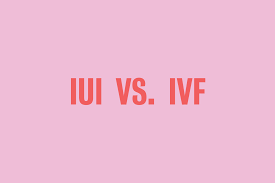For couples struggling with infertility, assisted reproductive technologies like Intrauterine Insemination (IUI) and In Vitro Fertilization (IVF) offer hope for building a family. However, understanding the differences in success rates between these treatments and how age influences the outcome is crucial. In this article, we will explore the success rates of IUI and IVF, with a specific focus on how age plays a significant role in the effectiveness of these fertility treatments.
IUI vs. IVF: An Overview
- Intrauterine Insemination (IUI): IUI involves the introduction of specially prepared sperm directly into the uterus around the time of ovulation. It is a less invasive and lower-cost fertility treatment compared to IVF. IUI is typically recommended for couples with certain types of infertility issues, such as mild male factor infertility or unexplained infertility.
- In Vitro Fertilization (IVF): IVF is a more complex fertility treatment that involves retrieving eggs from the ovaries, fertilizing them with sperm in a laboratory setting, and transferring the resulting embryos into the uterus. IVF is often recommended for couples with more severe infertility issues or when other treatments like IUI have not been successful.
Success Rates of IUI
IUI success rates can vary depending on various factors, including the cause of infertility, the woman’s age, and the number of cycles attempted. On average, the success rate for IUI per cycle is around 10-20%. However, these rates can increase with multiple cycles. The chance of success tends to be higher for younger women with no significant fertility issues.
IVF Success Rates by Age
IVF success rates are significantly influenced by a woman’s age due to the quality and quantity of her eggs. Here is a breakdown of IVF success rates by age:
- Under 35: Women under 35 have the highest IVF success rates, with a national average of around 40% for a single IVF cycle leading to a live birth.
- 35-37: The success rate starts to decline in this age group, with an average success rate of about 31%.
- 38-40: For women aged 38-40, the average IVF success rate drops to approximately 22%.
- 41-42: In the 41-42 age group, the average success rate further decreases to about 12%.
- Over 42: Women over the age of 42 have the lowest IVF success rates, typically around 5% or lower.
Factors Impacting IVF Success
In addition to age, several other factors can influence IVF success rates:
- Egg Quality: The quality of a woman’s eggs is a significant factor. As women age, the quality of their eggs decreases, making it harder to achieve a successful pregnancy.
- Sperm Quality: The quality of sperm used for IVF also plays a role in success. Male factor infertility can impact the overall success rate.
- Previous Pregnancy: A history of successful pregnancies can increase the likelihood of success with IVF.
- Number of Embryos Transferred: The number of embryos transferred during IVF can affect the chances of multiple pregnancies and success rates.
Conclusion
When considering fertility treatments like IUI or IVF, understanding the impact of age on success rates is essential. While IUI can be effective for some couples, especially those with milder fertility issues, IVF tends to have higher success rates overall. However, these rates significantly decline with increasing maternal age due to the natural decline in egg quality and quantity.
Ultimately, it’s crucial for individuals and couples struggling with infertility to consult with a fertility specialist. They can provide personalized guidance, recommend appropriate treatments, and discuss the chances of success based on individual factors, including age. Making informed decisions and seeking professional advice are essential steps on the path to building a family through assisted reproductive technologies.
Also Read: The National Society of Leadership and Success: Cultivating Leaders of Tomorrow


